Football: stop for a second and think about what image that word conjures up. Maybe it's the Guinness advert, maybe it's David Beckham in his heyday, maybe it's crowds of scarf-flourishing devotees chanting 'it's coming home'. Yet in the last few weeks, history has been made as football has been re-defined as a sport for women to participate in and enjoy too (and about time, given it's such a massive part of our national identity).
That's not to say that women haven't enjoyed football previously, but when the lions share of the glory has gone to male teams with male managers and (mostly) male fans, it's not surprising that it's identity has become masculine by default. However this is a misconception that has gradually been chipped away at over the last few weeks by the perseverance and success of the England women's football team, as they tackled (pun fully intended) the Women's World Cup 2019. But it wasn't just their adversary teams that the women of the English woman's football team took on as they battled it out in the leagues, but the smashing down of entrenched ideas about what football looks like, and who it's spectators are.
While last nights match may have seen our women's team defeated 2-1 by the USA, a record 11.7 million people tuned in to watch the match - making it the most-watched British television broadcast of the year. The enthusiasm displayed for Women's football this year doesn't just stop there: England’s three-nil victory over Norway in the quarter-final was the most-watched women’s football match in UK TV history (until the semi-final anyway), with 7.6 million people tuning in, and the Women's World Cup section of the BBC sport website has received over 9.4 Million viewers.
In spite of the misogynistic slurs and negative attention that women's football has historically attracted (this year Charlie Hebdo won that prize, by printing a cover cartoon image of a vagina with a football in it as a nod to the event), the Women's World Cup has battled on to inspire just as many male viewers to tune in and engage as female, proving that our national best-loved game isn't just about the gender of the players.
One thing's clear: While our team may have failed to make it to the semi-finals in last nights match, they have come leaps and bounds in representing football as a sport that's for everyone. From women tweeting about their regrets in giving up football when they were younger to crowds peppered with more female spectators than we've ever seen for a football championship, here's what the changing face of football has looked like over the last four weeks....
Women's World Cup 2019 Spectators - Grazia
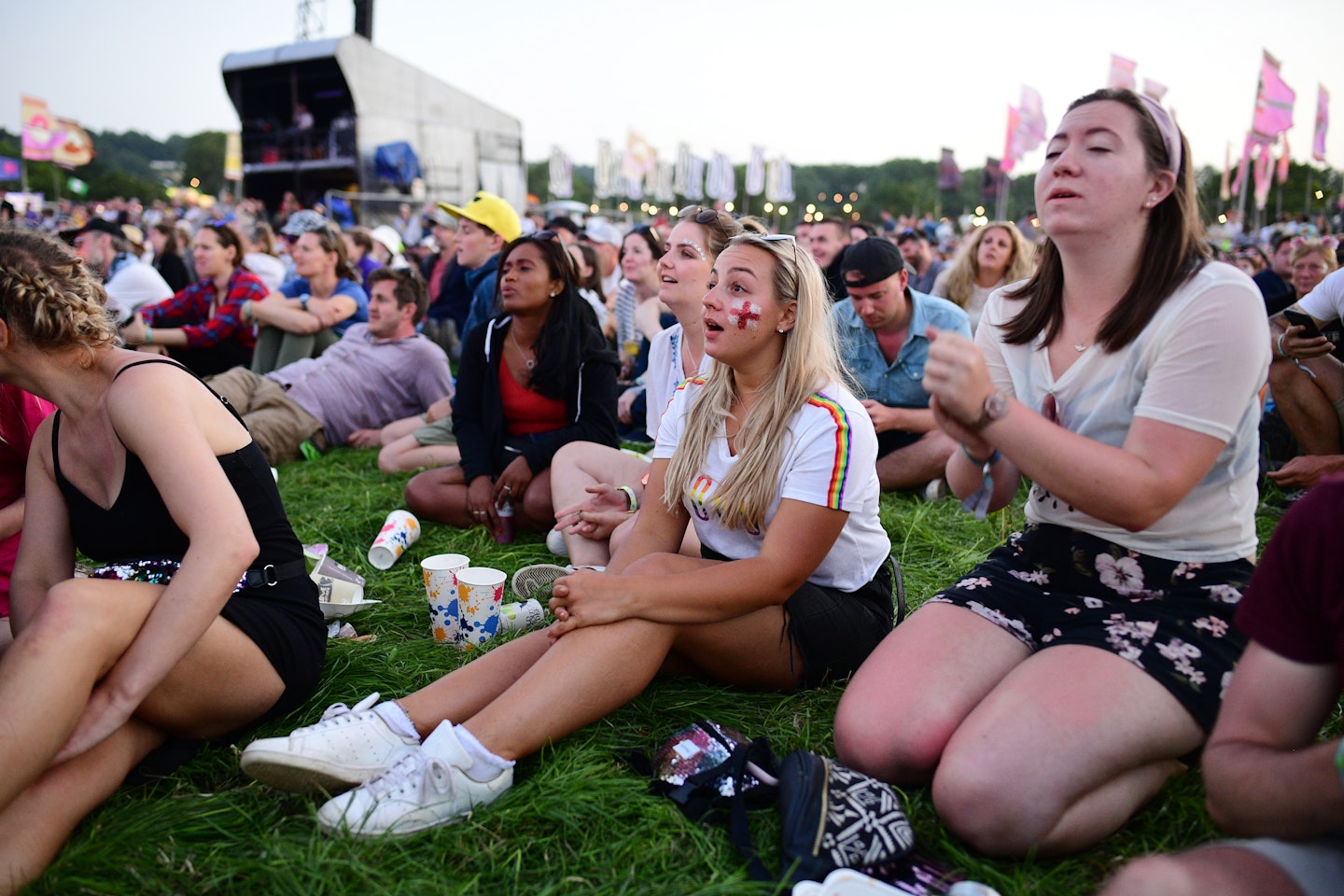 1 of 12
1 of 12Glastonbury Televised Match
England Fans watch Sunday's match at Glastonbury.
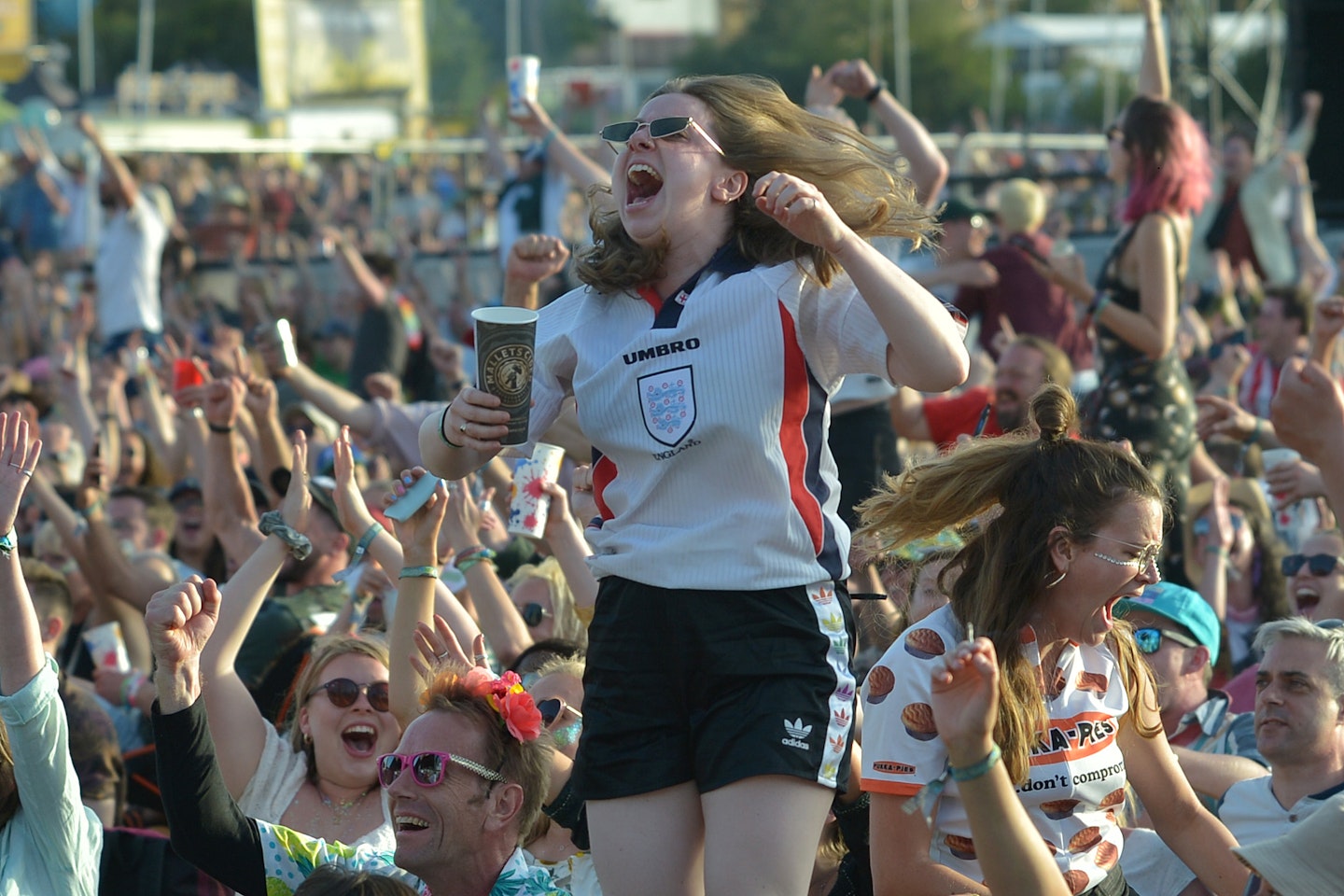 2 of 12
2 of 12Glastonbury Televised Match
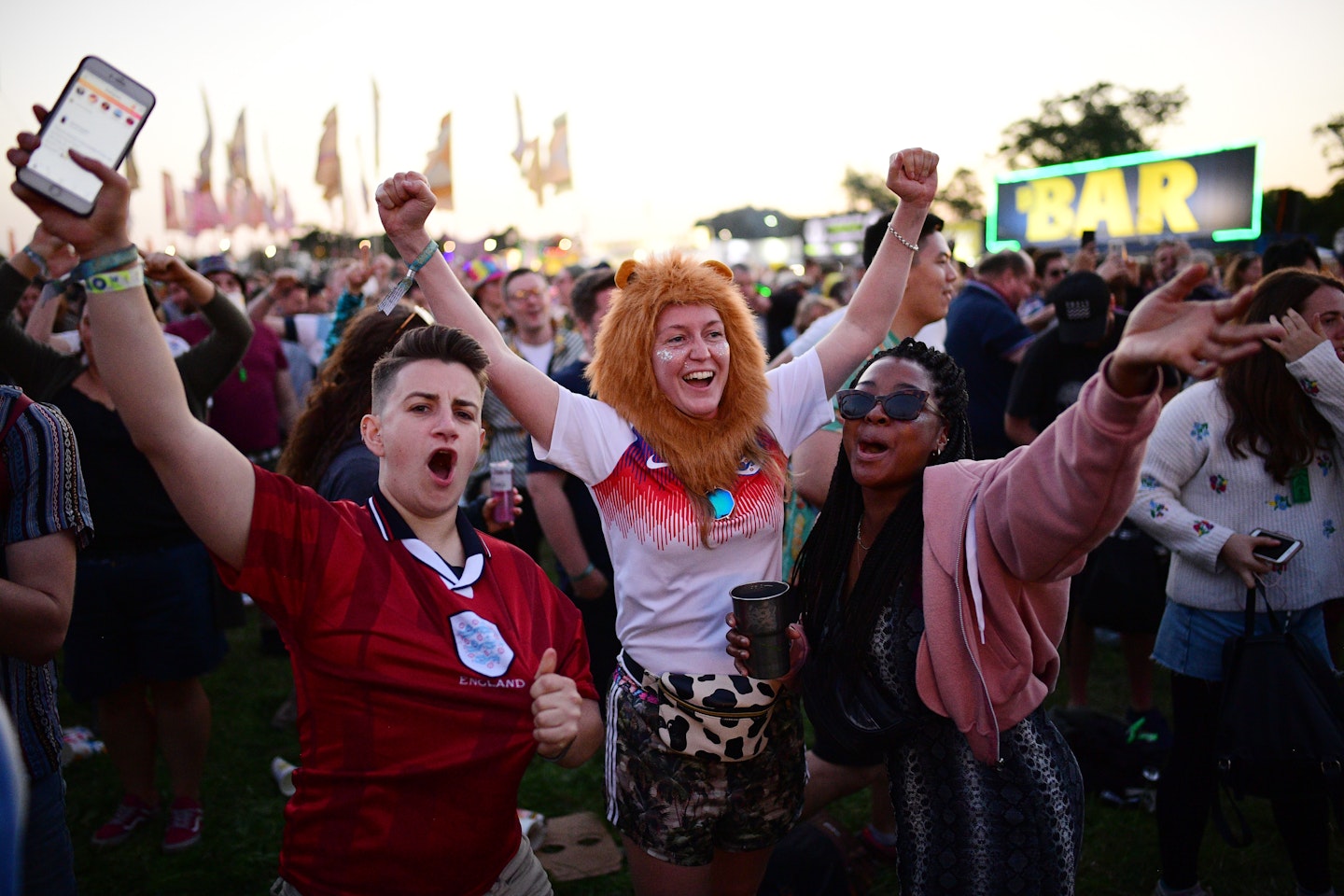 3 of 12
3 of 12Glastonbury Televised Match
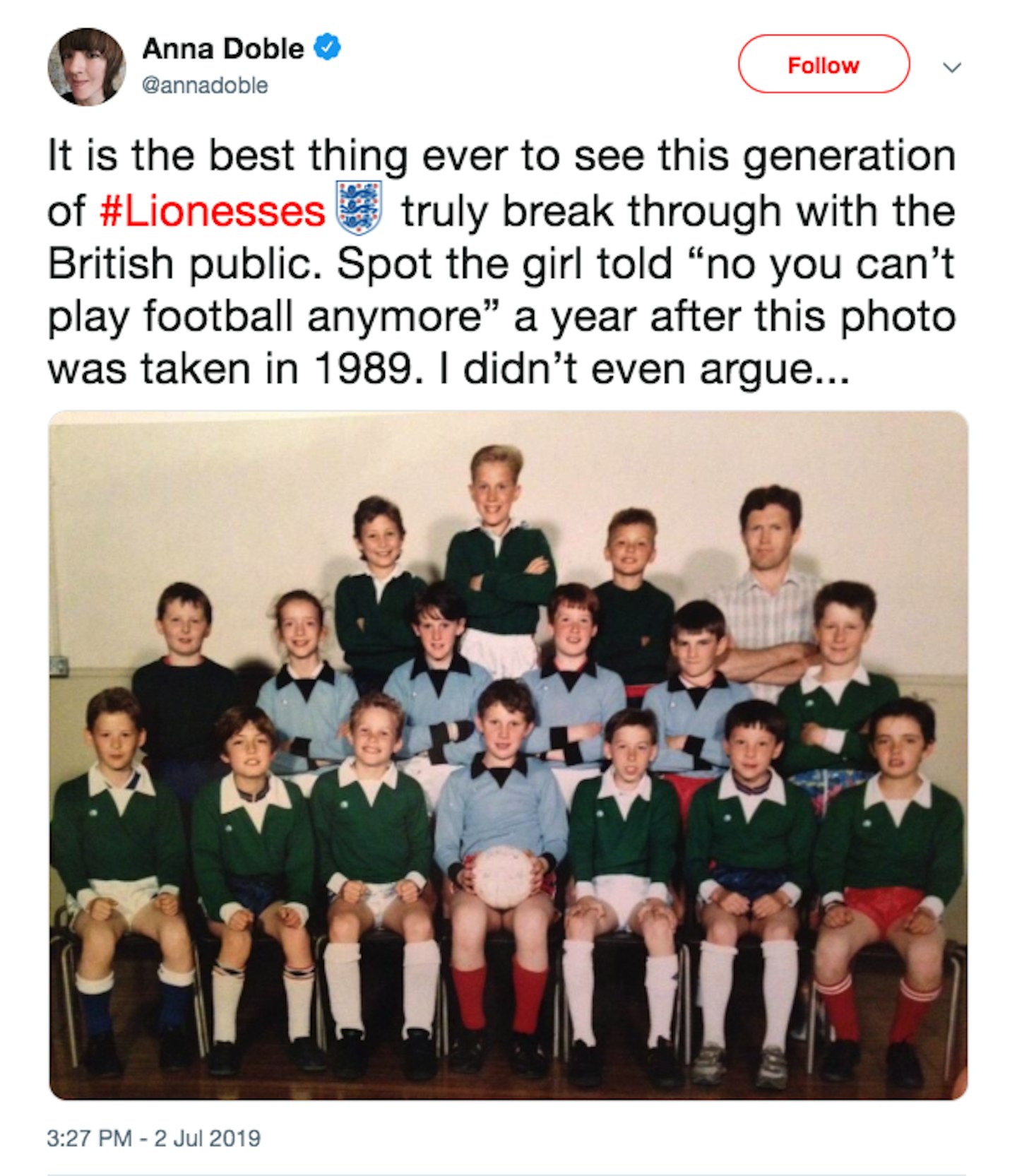 4 of 12
4 of 12Twitter Reactions
'It is the best thing ever to see this generation of #Lionesses truly break through with the British public. Spot the girl told "no you can't play football anymore" a year after this photo was taken in 1989. I didn't even argue...'
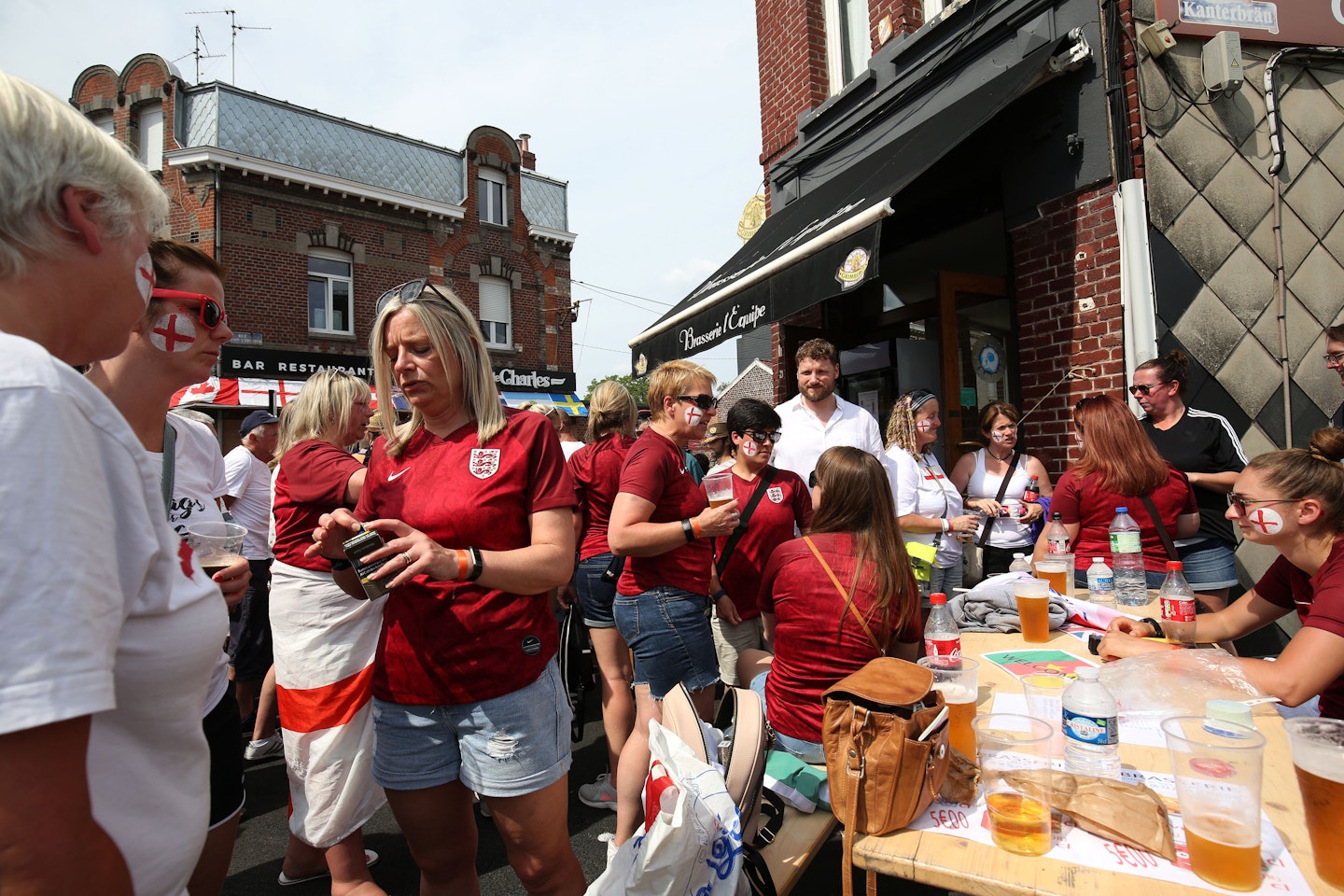 5 of 12
5 of 12England Vs Cameroon
Women's World Cup enthusiasts congregating for the England Vs Cameroon match outside of a pub in Valenciennes.
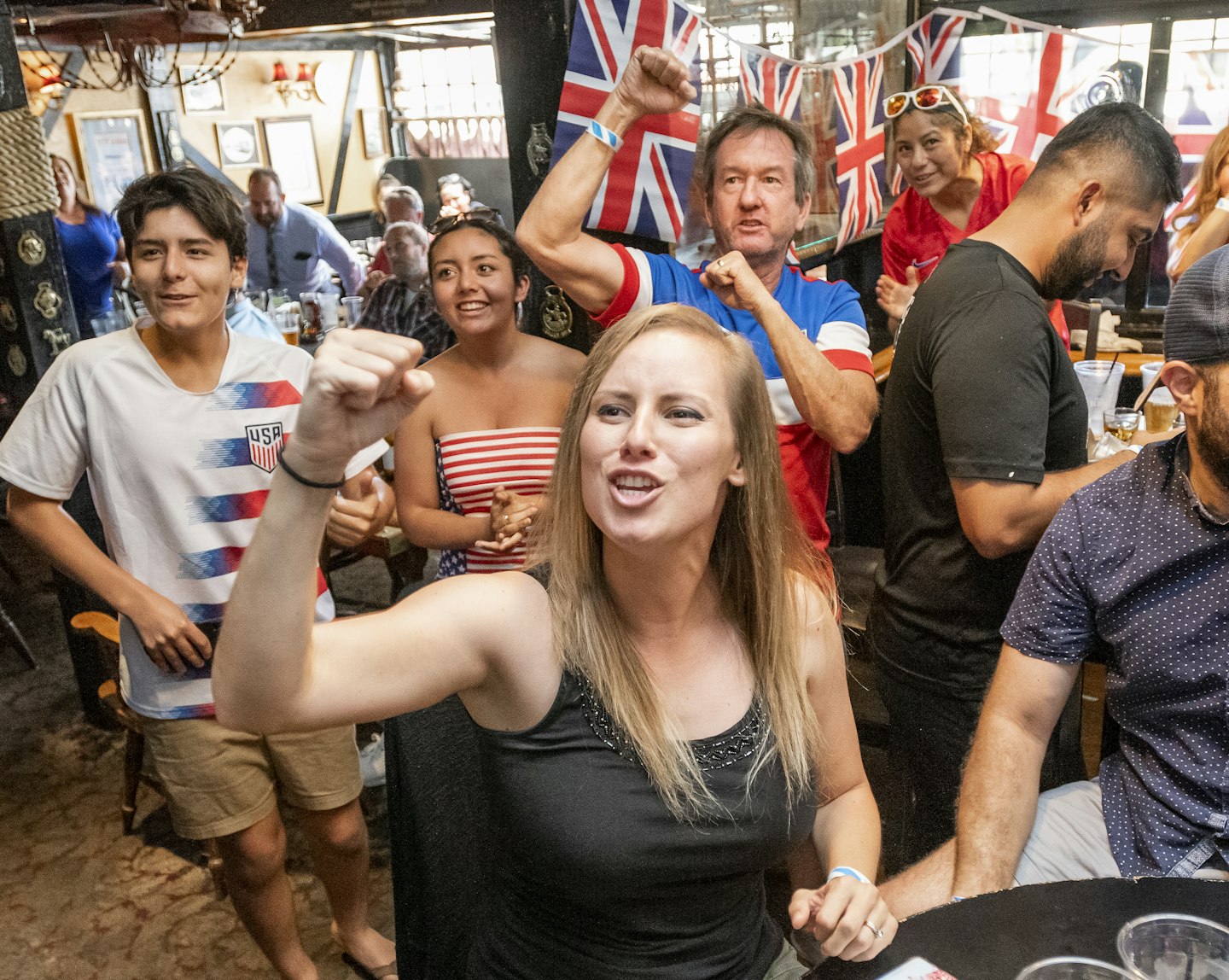 6 of 12
6 of 12England Vs Cameroon
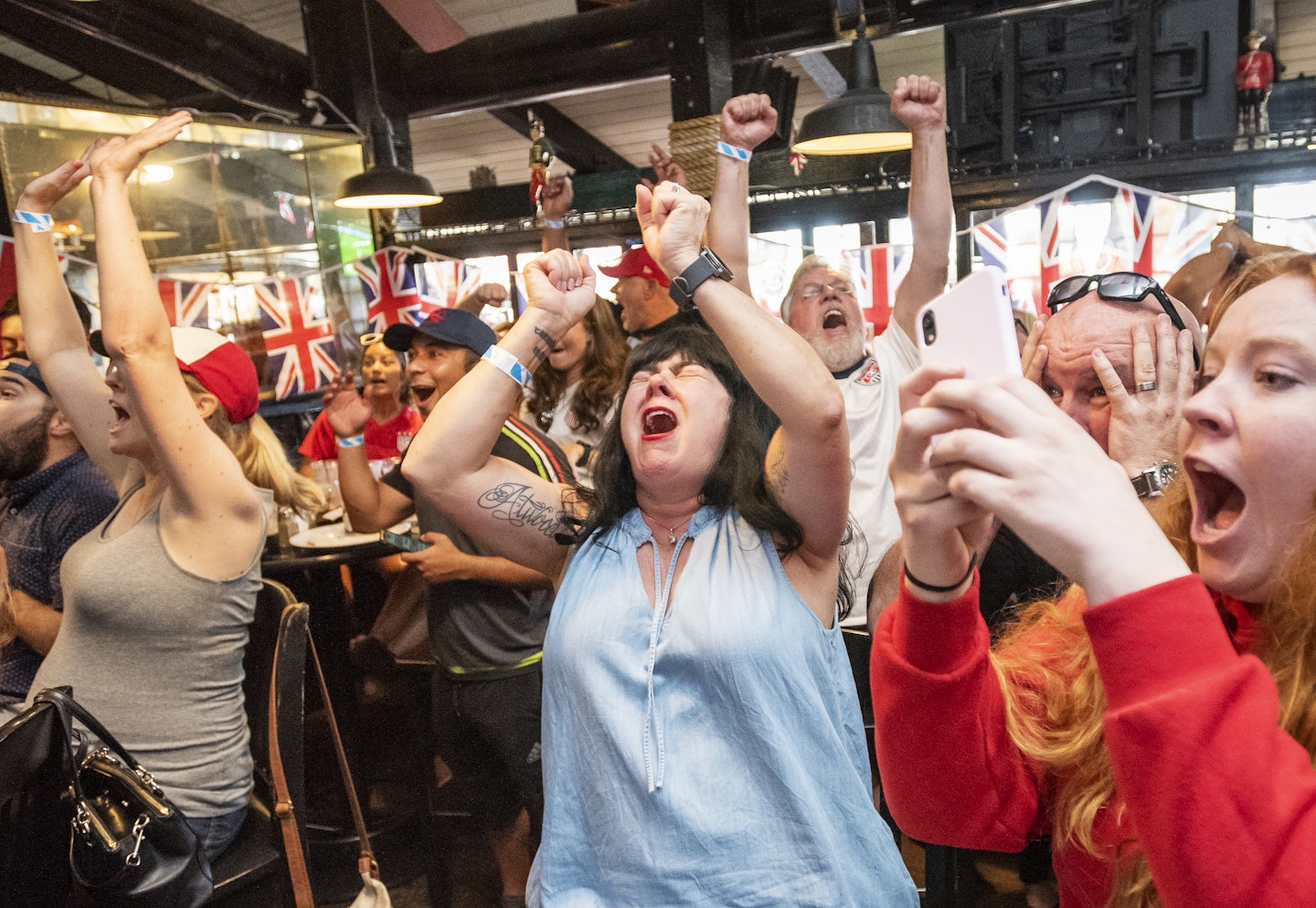 7 of 12
7 of 12England Vs Cameroon
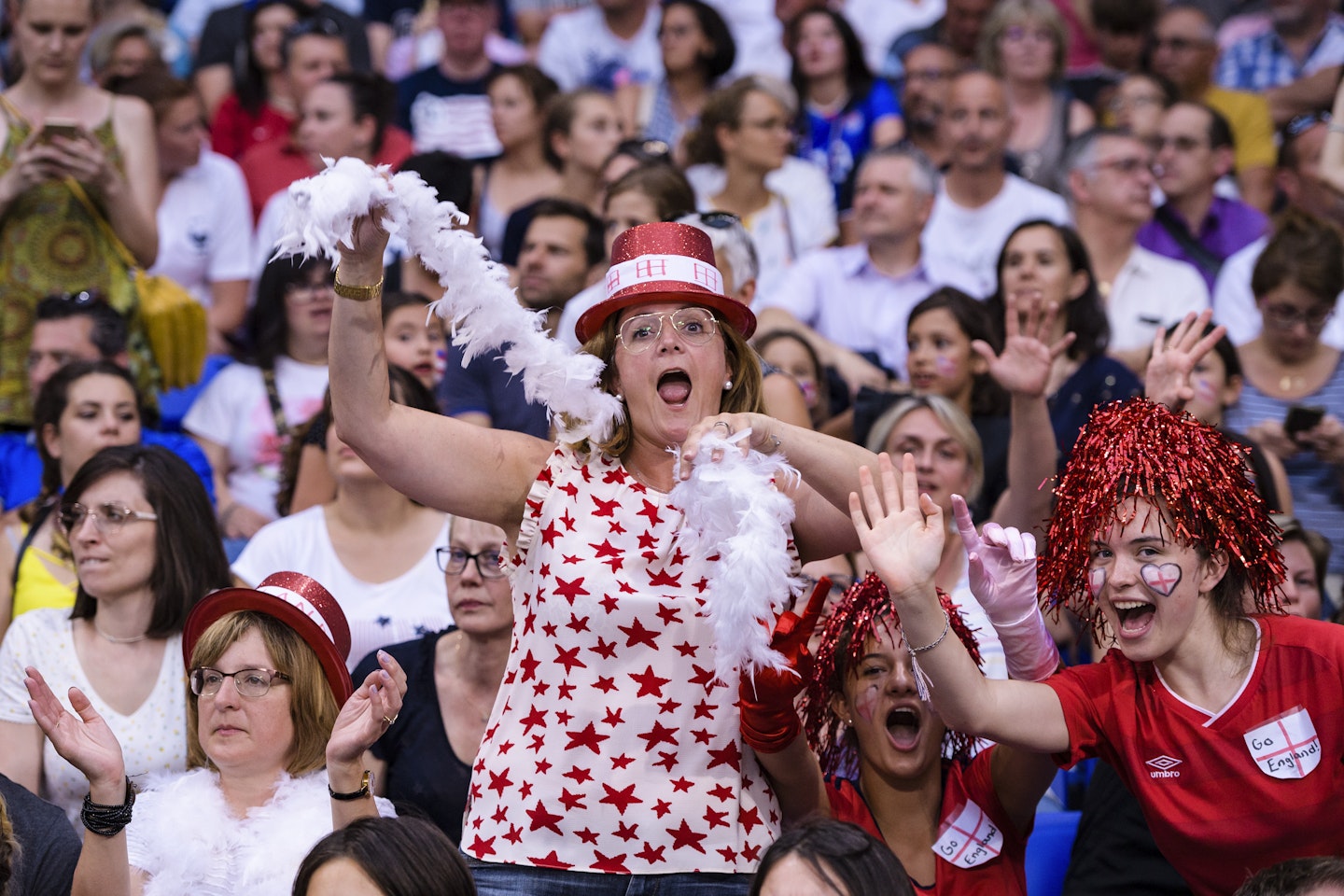 8 of 12
8 of 12England Vs USA
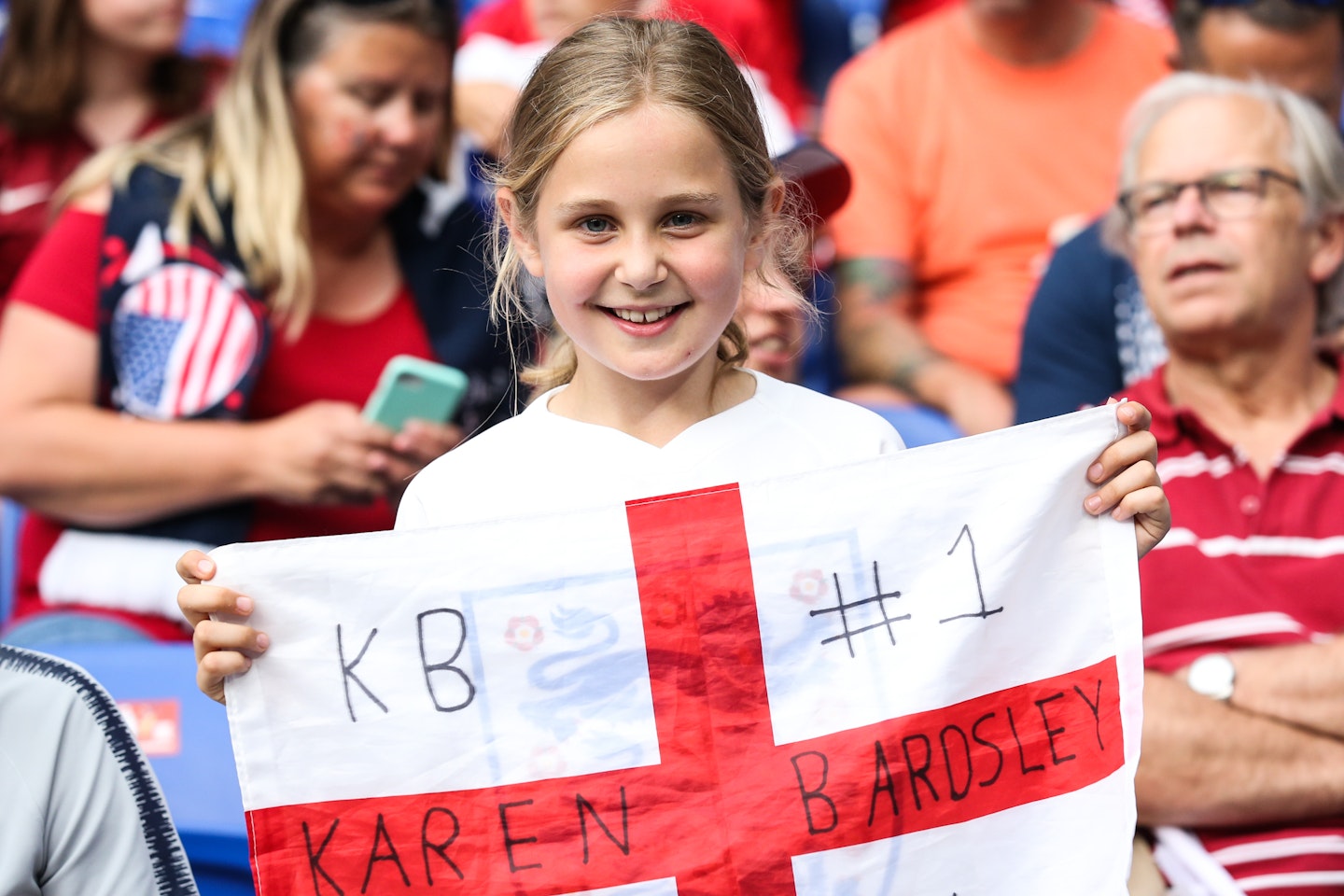 9 of 12
9 of 12England Vs USA
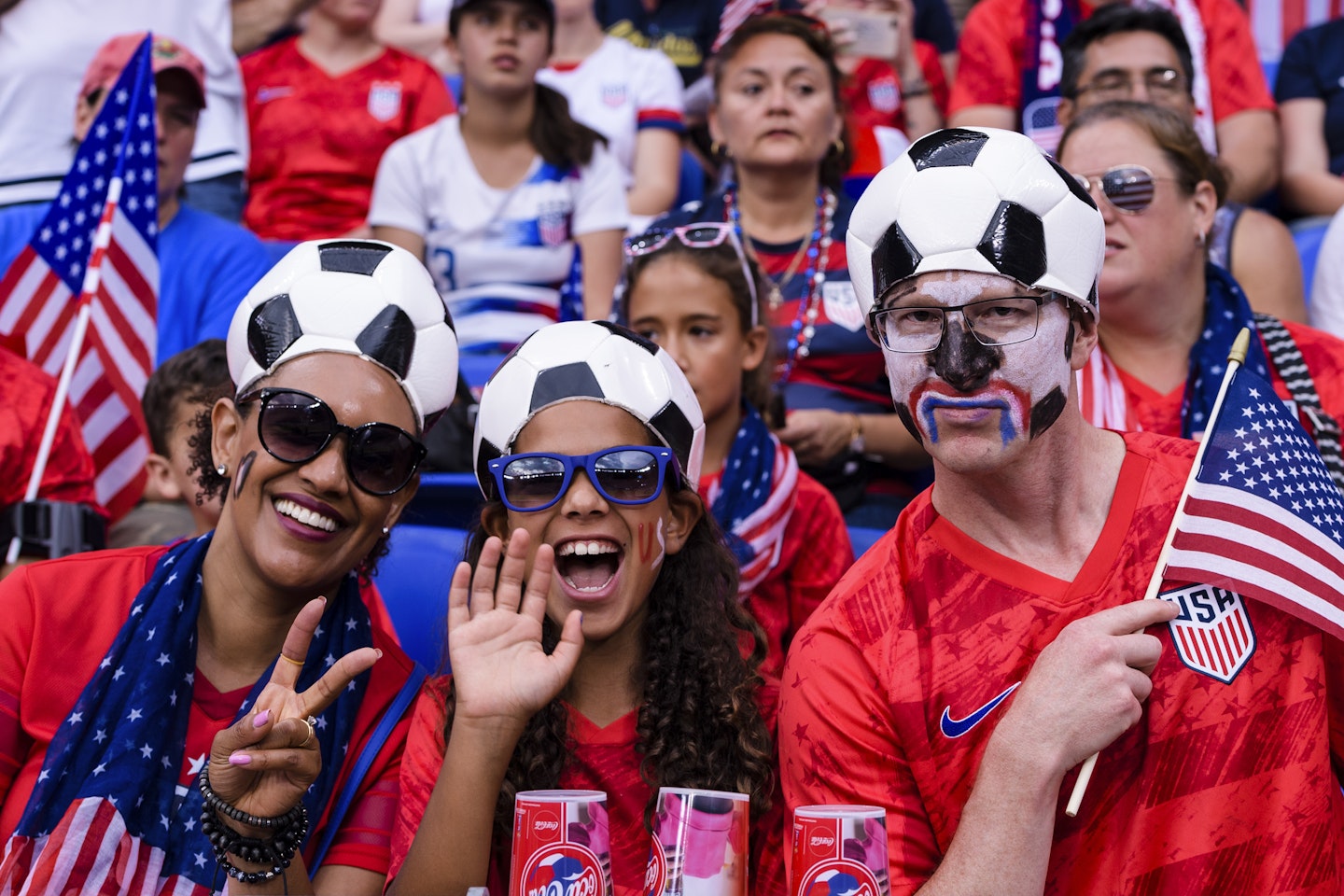 10 of 12
10 of 12England Vs USA
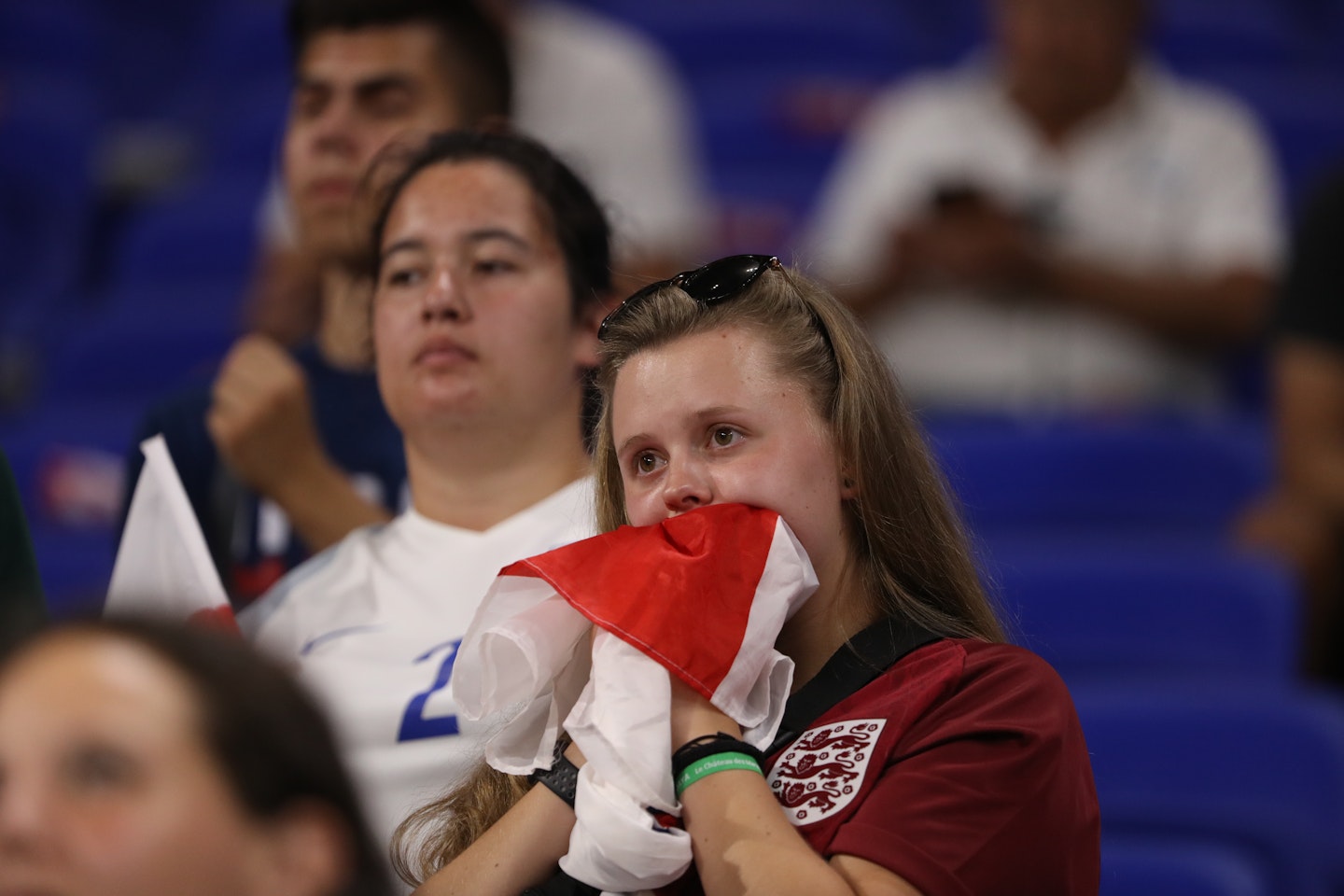 11 of 12
11 of 12England Vs USA
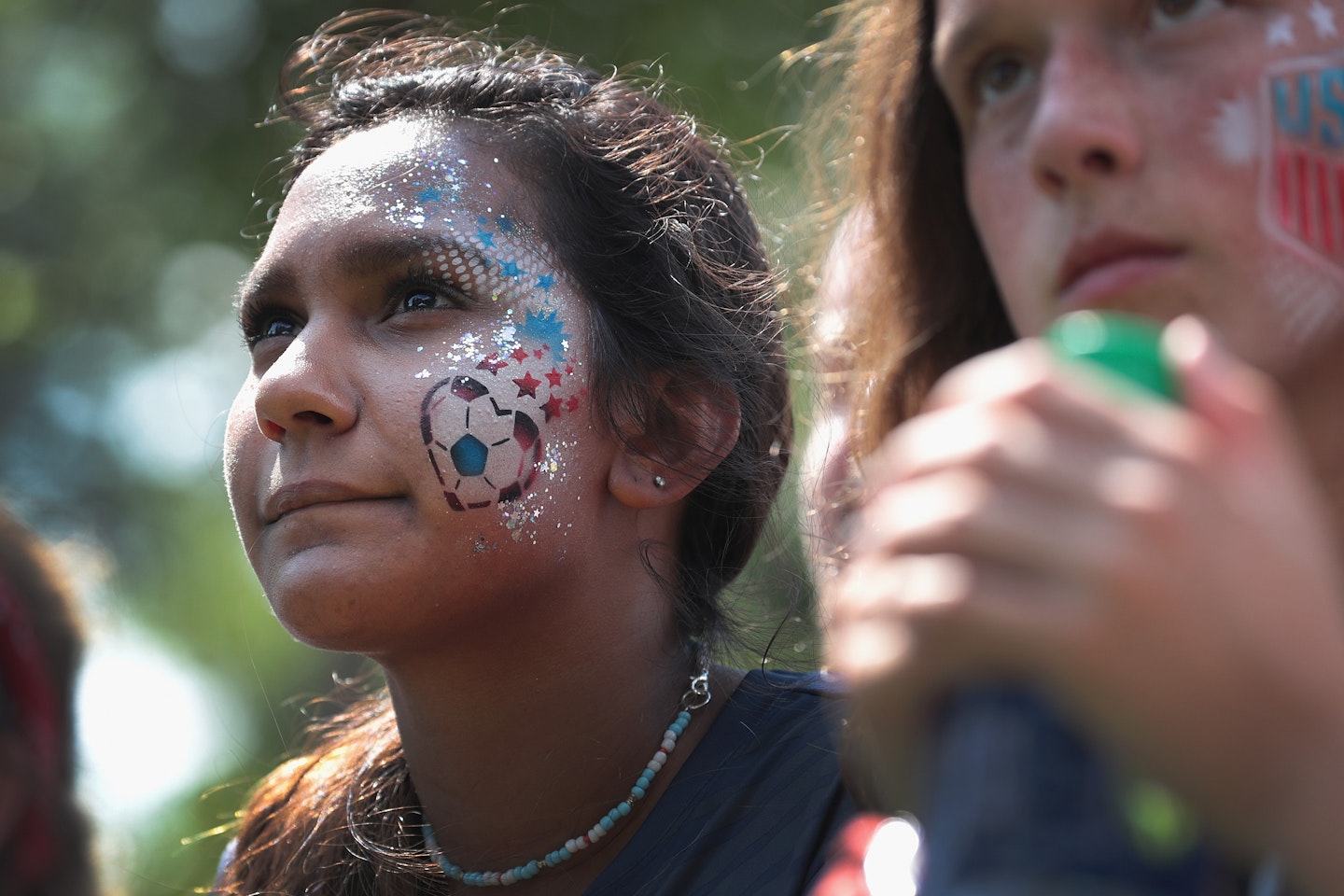 12 of 12
12 of 12.jpg?ar=16%3A9&fit=crop&crop=top&auto=format&w=1440&q=80)